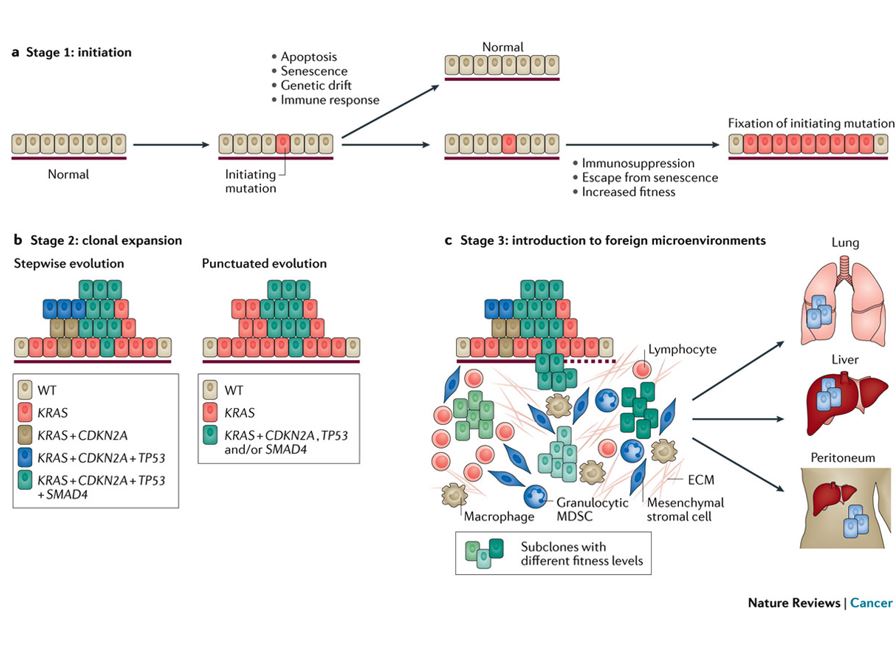Research in the Makohon-Moore Lab

Evolution is an ideal framework for investigating cancer because evolutionary processes underpin every phase of tumor biology (Figure 1).
Studies of cancer evolution, including our own, have found heterogeneity among cancer cells, stromal cells, immune cells, and other components of the tumor microenvironment. A major challenge is to decipher the extent to which heterogeneity fuels evolution and determines clinical outcomes.
Cancer cells experience environmental selective pressures and bottlenecks throughout tumorigenesis, metastasis and treatment. We currently lack a complete understanding of how environmental forces impact cancer evolution.
Cancer evolution exhibits molecular dynamics, including genetic, epigenetic, gene expression, proteomic, metabolic, and others, that are often difficult to directly measure and prioritize by therapeutic potential.
Our lab examines cancer evolution by combining experimental evolution, pathology, and computational analyses. This is important because there is an urgent need to define evolutionary mechanisms of tumorigenesis, metastasis and treatment resistance. We are currently investigating critical questions such as:
- What factors determine cancer cell fitness in a particular environment?
- To what extent do tumors evolve over space and time?
- What therapeutic interventions thwart cancer evolution?
These studies emphasize mechanisms and dynamics to comprehensively define cancer evolution. Our ultimate goal is to develop detection and treatment strategies to undermine the evolution of aggressive tumors, and thereby benefit patients and improve survival.
We thank the National Institutes of Health, the Sol Goldman Center for Pancreatic Cancer Research, the David M. Rubenstein Center for Pancreatic Cancer Research, the Melanoma Research Alliance, and the patients and families who generously participate in studies and support our past and current research.
